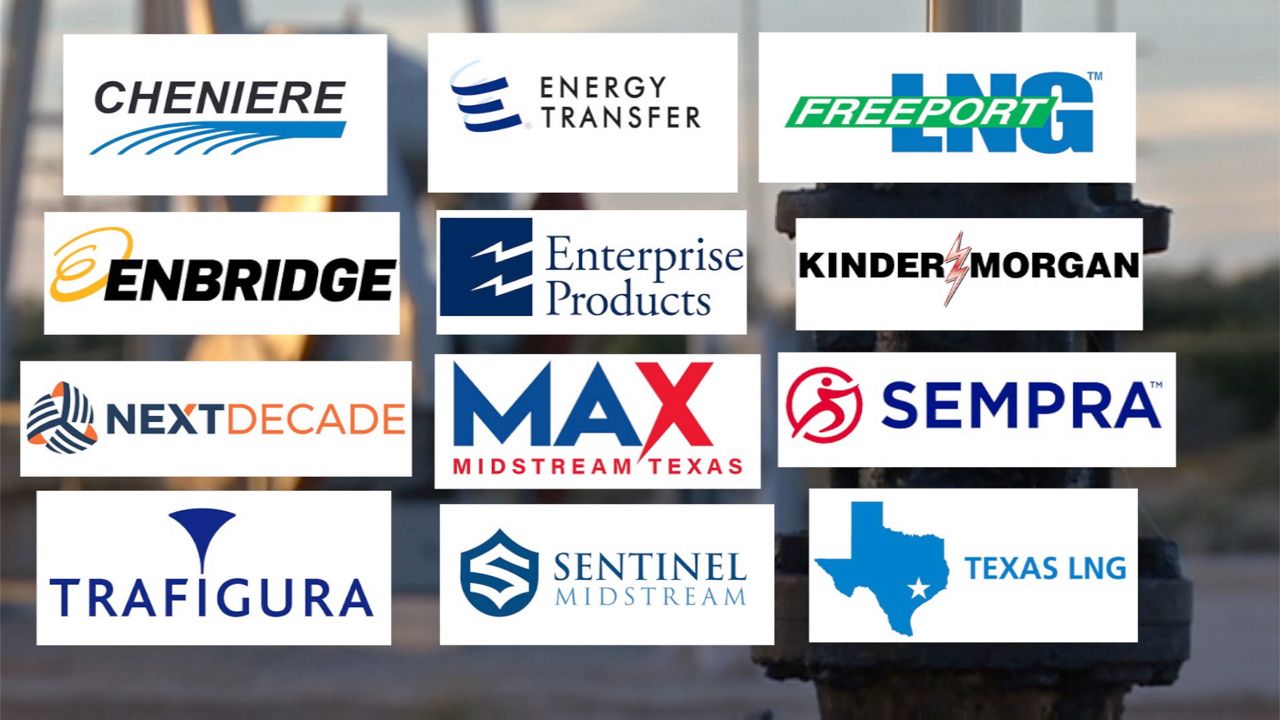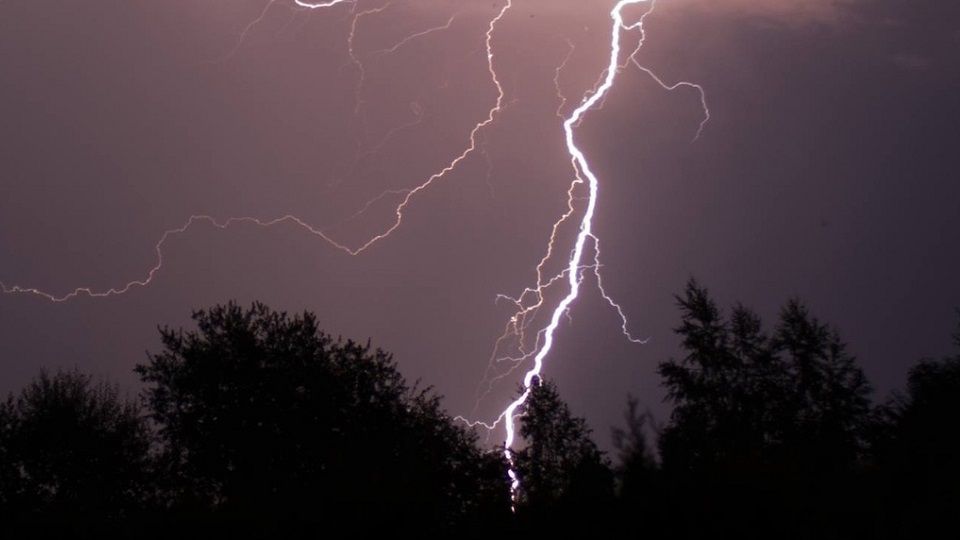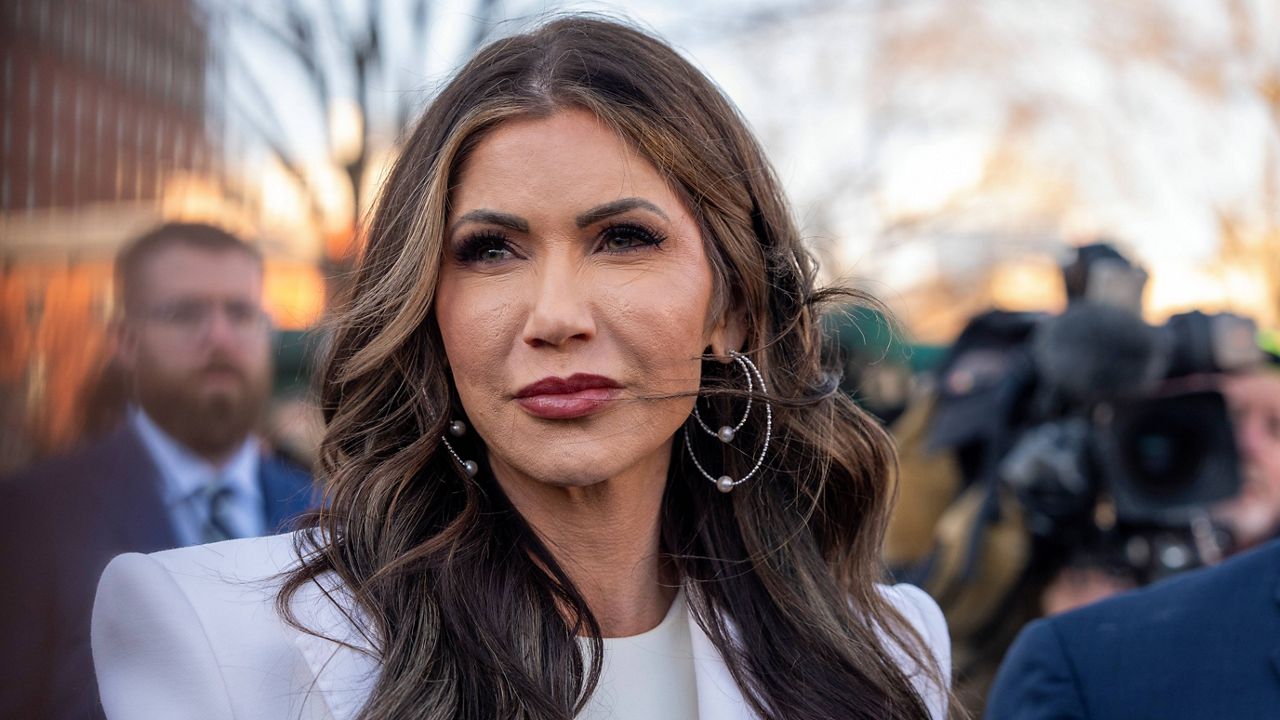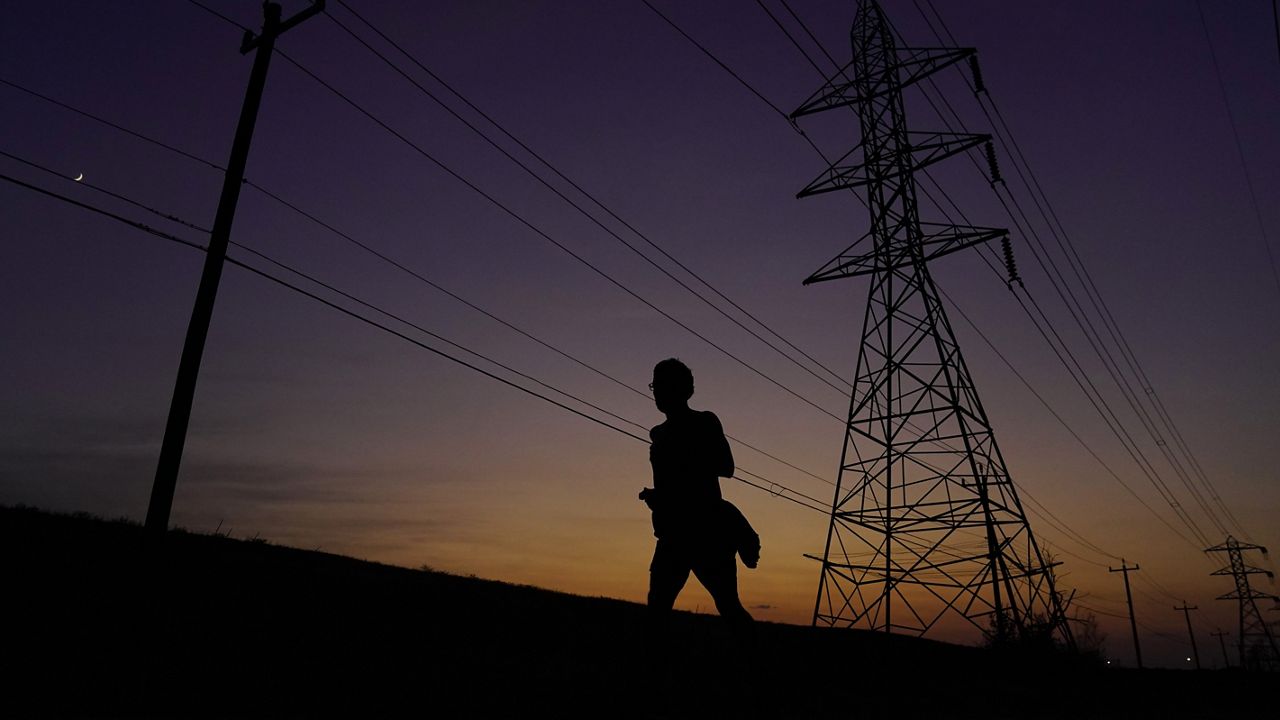AUSTIN, Texas — It’s called the "Terrible 12." This is list you don’t want to be on.
Texas Campaign for the Environment released the names of Texas’ top polluters, which is made up of the who’s who of oil and gas companies in the state and some of the largest in the industry worldwide.

Texas has been slammed with more severe weather than ever before as a result of climate change. World leaders have warned that if carbon emissions aren’t contained, it will only get worse.
The U.S. had made some progress in reducing its emissions, but an EPA report ranks the U.S. second to China as the world’s largest greenhouse gas emitter. Texas plays a huge role in that.
The U.S. Energy Information Administration shows Texas as the largest producer of carbon dioxide emissions in the country. TCE claims the “Terrible 12” are the biggest contributors to those emissions. They are exporters of crude oil and natural gas mainly operating on the Gulf Coast.
This pollution impacts the entire state, even green cities like Austin, and communities of color are hit the hardest. That includes Marcos deLeon’s neighborhood.
The Austin native grew up in the Barrio, a historically Hispanic neighborhood in East Austin. He lives hundreds of miles from the closest oil refinery, but he sees the effects pollution has had in his neighborhood every day, and he only has to walk a few minutes to be reminded.
“People were piggy-backing on our misery,” he said.
deLeon’s house is a few blocks way from the old Holly Power Plant. It polluted his community for decades and they fought until it was shut down in 2007.
“These are really fine particles that will get inside your lungs, they’re carcinogenic,” he said.
Now, deLeon says he understands how harmful these factories are for Texans, even if they’re not next door.
“The particles, the pollution that it emits, it’s very harmful,” he said.
That’s why Texas Campaign for the Environment Executive Director Robin Schneider says it’s time to give the companies responsible the infamy they deserve.
“We are all impacted by this and we need to mobilize and we need to put pressure on these companies,” she said.
The “Terrible 12” list is part of TCE’s “Save Texas” campaign.

Schneider says TCE selected these companies based on several factors:
- High emissions and exports
- Low safety records
- Frequent run-ins with federal regulators
- Track record of deadly disasters
- History of harming BIPOC communities
“Whole communities are written off as, oh, they’ve got one polluting facility, let’s give them another. That’s not fair,” Schneider said. “And it’s often communities of color that have been neglected for generations and generations.”
Spectrum News 1 reached out all 12 companies for comment. Four responded: Sempra, Sentinel Midstream, Freeport LNG, and Enbridge.
A spokesperson at Sempra sent us this written statement:
“Sempra Infrastructure completely disagrees with the assertion that natural gas exports are bad for the environment and Texas, particularly in light of the need to replace Russian natural gas to our allies. US LNG to Asian and European markets reduces greenhouse gas emissions by nearly 50% when used in place of coal, and has a lower emission profile than Russian natural gas. We are actively working to reduce emissions even more through technologies like electric driven compressors and carbon capture and sequestration. Port Arthur LNG will bring thousands of good-paying construction and operations jobs to an area that continues to have an unemployment rate nearly twice the national average, and we appreciate the support we have received from the Port Arthur community. We are proud of our community involvement in Port Arthur, where we have contributed over $1 million to community non-profits since 2015.”
Sentinel Midstream President & CEO Jeff Ballard wrote:
“I encourage the creators of this list and members of the public to take the time to educate themselves on the many benefits of deepwater ports like Texas GulfLink. Texas GulfLink is significantly better for the environment than the existing crude oil loading process. Among other advantages, Texas GulfLink would reduce carbon emissions by ~80% when compared to the cumulative effects of the current loading process. It would also mitigate existing air quality impacts to local portside communities in the Greater Houston area. I invite the public to learn more at our website, www.texasgulflink.com.”
In a written statement, an Enbridge spokesperson said:
“The claims made in the list are inaccurate. We invite you to read our recent Sustainability Report which details our commitment to and progress in reducing emissions – net zero emissions by 2050 – collaborating with Indigenous tribes in both the US and Canada, and protecting the environment while keeping critical energy flowing. We are committed to being a steward of the environment, a safe operator of essential energy infrastructure and a diverse employer.
Please visit our recent Sustainability Report for details about our ESG efforts.
https://www.enbridge.com/about-us/our-values/sustainability.”
Freeport LNG replied: “We have no comment.”
Texas Oil and Gas Association reports increasing strength in upstream oil and natural gas employment in the state. In February of 2022, it states upstream jobs grew by 5,100, the highest spike in over a decade.
At the Northeast Texas Energy Summit in March, Texas Oil and Gas Association President Todd Staples was quoted saying: “If Texas were its own country, it would be the third largest natural gas producer and fourth largest crude oil producer in the world.”
Schneider says the damage caused by pollution far exceeds its economic gains, and those jobs could easily be replaced by sustainable energy production, which is also growing in Texas.
“Texas has had more climate disasters, more billion-dollar climate disasters than any state in the country,” she said. “In terms of the environmental costs, the health impacts, it costs us a lot.”
deLeon says this companies are all about profit, and government isn’t doing enough to prevent pollution.
“They put economics above everything else,” he said. “If you harm people, you need to be held accountable.”










